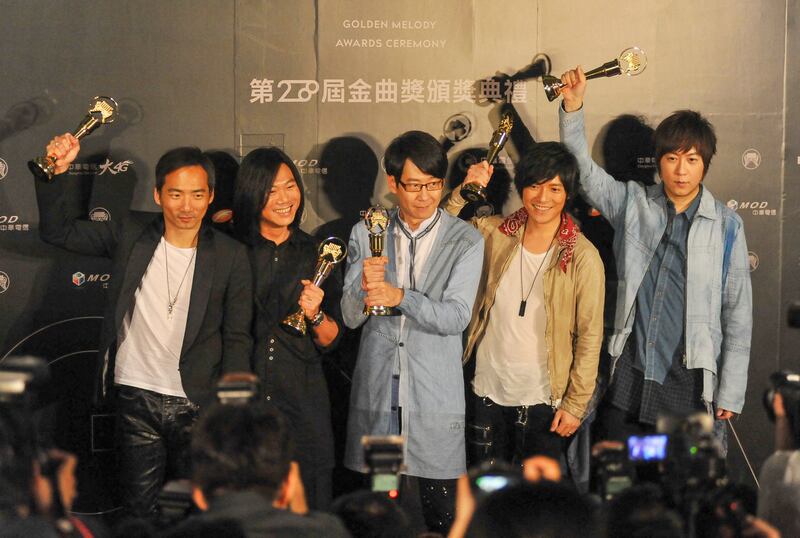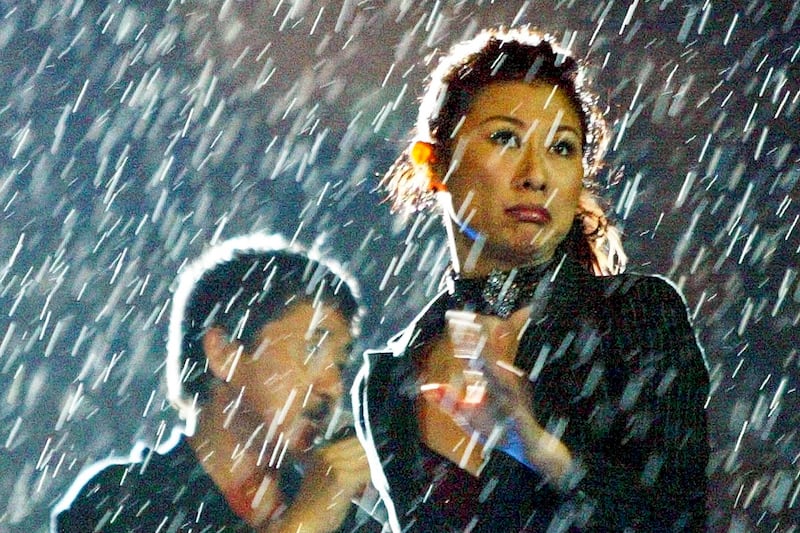Mandarin song lyrics written, performed by and aimed at Chinese women have seen a dramatic shift in recent years, focusing far less on romantic love and much more on personal freedom and fulfillment, recent research has shown.
According to researchers at Hong Kong's University of Science and Technology, the classic Mandarin pop ballad, often accompanied with videos in which a fragile-looking young woman wanders along a seashore or looks tearfully out of a window, sighing or weeping over an unsuccessful love affair, may soon be a thing of the past.
A team led by business school assistant professor Wenbo Wang found that songs in which love is the ultimate goal have been replaced in recent years by songs about freedom, self-determination and self-confidence -- a world in which love definitely isn't the crowning achievement of a woman's life, and may just be the icing on the cake.
Take the 1990s hit "Rain Butterfly," penned in the 1990s by Taiwanese songwriters Hsu Chang-te and Chiung Yao, recorded by singer E-jun Lee and used in the hit TV show "My Fair Princess."
"I fly to you, falling gently as the rain, though there have been tears and pain along the way, I pursue you tirelessly, no matter how far," run the lyrics. "As long as you have no complaints, I have no regrets ... I'm intoxicated by the feeling of being loved."
In "Jailbird," a hit from the same era with lyrics by Taiwanese writer Tracy Hsiao, the singer describes being "a bird caged by you who has forgotten how high the sky is."
"If I leave this small castle you have given me, who else could I rely on?"
Well -- according to this generation of Mandopop stars -- maybe herself.
‘Miss Similar’
She could explore her individuality, rather than slavishly following the latest advertising and beauty trends, according to Hong Kong artist G.E.M. Tang's "Miss Similar," which dropped in 2019.
"Similar girls, chasing similar looks, wanting similar things, being led by the nose," she raps. "On similar streets, striking similar poses, following similar trends, getting similar noses. Life really shouldn't be like this."
Or she could get comfortable with being on her own, according to a 2024 track titled "Today, We" by lyricist Icy Cao and Chinese singer Yuan Quan.
"Not going anywhere today ... people who know how to be happy can embrace beauty in the unknown," Yuan sings. "Today, I'm not gonna give myself a hard time. Gonna give myself a break."
The study comes as young people in China are far less likely to marry and have kids than they were a decade ago, pushing back amid economic woes, a competitive culture and parental pressure to tick off traditional milestones like a career, marriage, a mortgage and children.
Both young women and young men have told Radio Free Asia in recent interviews that they are refusing marriage, mortgages and kids as a form of silent protest, or simply because they have enough trouble meeting their own needs in today's flagging economy.
Young women in China, meanwhile, have told RFA they are unimpressed by the ruling Communist Party's bid to get them to have more babies to shore up a shrinking population, citing huge inequalities and patriarchal attitudes that still run through family life, not to mention the sheer economic cost of raising a family.
‘They just want to make money’
According to study author Wang, whose team trawled song lyrics using ChatGPT to gauge what resonates with young women in the Chinese-speaking world today, "there are fewer and fewer songs about love."
"Nowadays, people don't want to fall in love, they just want to make money and build a career," assistant professor and study author Wenbo Wang was quoted by Chinese digital media outlet The Paper as saying.
"Women today are more likely to pursue ideals of freedom, independence, rationality and courage," Wang said.

The changes in pop-song lyrics were also reflected in the most popular characters in TV dramas in recent years, Wang's team found, with female characters described as "strong and confident" more likely to gain popularity. Back in the 1990s, the most popular fictional women were far more likely to be described as "filial" or "virtuous."
Millennial Ellie Li, born in Beijing and now based in Washington, says change was already afoot when she was growing up listening to songs by the band Mayday.
She said both she and most of her female friends would agree with the apparent shift in sentiment.
"Firstly, better yourself, do well for yourself, then maybe meet the right person," Li told RFA Mandarin in a recent interview. "If it happens, great, if not, no pressure."
"There's no requirement to have a partner or start a family by a certain age -- it's more about going with the flow," she said, citing G.E.M. Tang's “Miss Similar” as a kind of cautionary tale.
Earlier signs
Lyricist Fred Chen, who has penned hit songs for top artists including Aaron Kwok, Chiang Yu-Heng, and Jimmy Lin, said that signs of the shift were already visible in some lyrics from the 1990s.
"You can't measure the influence or cultural significance of a pop song by averages," Chen said in a written reply to RFA. "It's more about looking at what is revealed or evoked by certain songs that got extremely popular, the special, unforgettable songs."
He cited Sarah Chen's "Dream to Awakening" from 1989 as an example of a "manifesto for urban women" who can take or leave romantic love.
"You knew heartbreak was inevitable, so why did you love so deeply?" the song goes. "Every time you wake from a dream, there are things you know now, people you don't need to wait for forever."
And "Run Without Care" by Sally Yeh from 1991 inspires people generally to live life to the fullest, embodying a sense of carefree energy, according to Chen.
"I'm betting my youth on tomorrow, while you exchange a whole lifetime for true life," Yeh sings. "Why not run free?"
Chen said social media has given a much broader platform for songs of all kinds to get an airing, saying there are still many other qualities that make a song popular other than the lyrics.
"People tend to prefer melody, rhythm, the arrangement and visual packaging over lyrics," he said.
Changing platforms
But lyricist Chien Yao said the rise of short video platforms like TikTok and Douyin could actually boost content that is more focused on self-determination than heartache and romantic love, although that is still very much there.
"Those needs have never actually gone away," Chien said. "I don't think they are a lower priority than the desire for money, material possessions or making one's mark."
But he has noticed that young women in China are far more likely to think deeply about art and literature, feeling and philosophy than their counterparts in Taiwan.

Chien said he was recently stopped by a member of the public in Beijing, after Icy Cao and Yuan Quan's hit "Today We" was released.
She wanted to know when he was going to collaborate on a new song with Yuan, who has made a comeback 15 years after leaving the Mandopop scene, where she had gained a reputation for being deep-thinking and "literary" in style.
"I miss that era -- when can you work with her again?" the woman wanted to know.
"So that demand is there, and it's especially strong among young women," Chien said.
Translated by Luisetta Mudie. Edited by Malcolm Foster.
